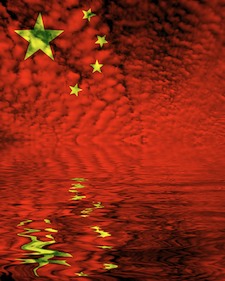WASHINGTON – Chinese and Americans widely distrust each other but few among the public or elite see the other power as an enemy, a survey said.
The study, billed as one of the most comprehensive looks at the views of influential Chinese, found that the Asian power’s elite mostly described their opinions about the United States as mild, despite the frequent disagreements between the world’s two largest economies.
“The elite and public findings really don’t confirm the perceptions in many quarters about what Chinese popular opinion is towards the United States,” said lead author Michael Swaine of the Carnegie Endowment for International Peace, which will release the survey on Thursday.
 “It doesn’t confirm the views of netizens in China that are generally very hawkish and rather, at times, bombastic about what China should do vis-a-vis the US,” he said.
“It doesn’t confirm the views of netizens in China that are generally very hawkish and rather, at times, bombastic about what China should do vis-a-vis the US,” he said.
The survey found that strong majorities in both countries, especially in China, doubted that the other power could be highly trusted. Most Americans and Chinese elites, as well as 45 percent of the Chinese public, characterized the other nation as a competitor.
But only 15 percent of the US public and 12 percent of the Chinese public saw the other nation as an enemy, the study said.
“There is a high level of distrust among the elites and the publics of both countries towards the other. However, on the other hand, there is a strong recognition of the need for the two countries to improve their relationship and to cooperate more deeply,” Swaine said.
But in one sharp disparity, 27 percent of Chinese government elites said they considered the United States an enemy — while a mere two percent of US government elites said likewise about China.
Swaine played down the gap, saying that it may be due to problems in methodology as the survey looked disproportionately at provincial Chinese officials with less exposure to foreign affairs.
The study surveyed in China 2,597 members of the public and 358 elites between May and July 2012. The US portion was conducted from March to May 2012 and polled 1,004 adults as well as 305 elites — who included government officials, retired military officers, business leaders, academics and journalists.
In one point of conflict, the study found a strong difference in perceptions of Taiwan, the self-governing democratic island where China’s defeated nationalists fled in 1949 and which Beijing claims as its own.
Large numbers of both the Chinese elite and public voiced major concerns over US arms sales to Taiwan, which enjoys firm support in the US Congress. Taiwan was barely on the radar for Americans when asked about impediments in relations with China.
In turn, the US elite — even those generally sympathetic to China — voiced growing alarm over Beijing’s alleged campaign of cyber hacking that has stolen US intellectual property.
The study also found that Americans “tended to be more self-critical” than the Chinese. Most of the Chinese public described Americans as aggressive, arrogant and greedy; majorities in the United States actually agreed with those characterizations of themselves but did not assign the same negative traits to Chinese.














